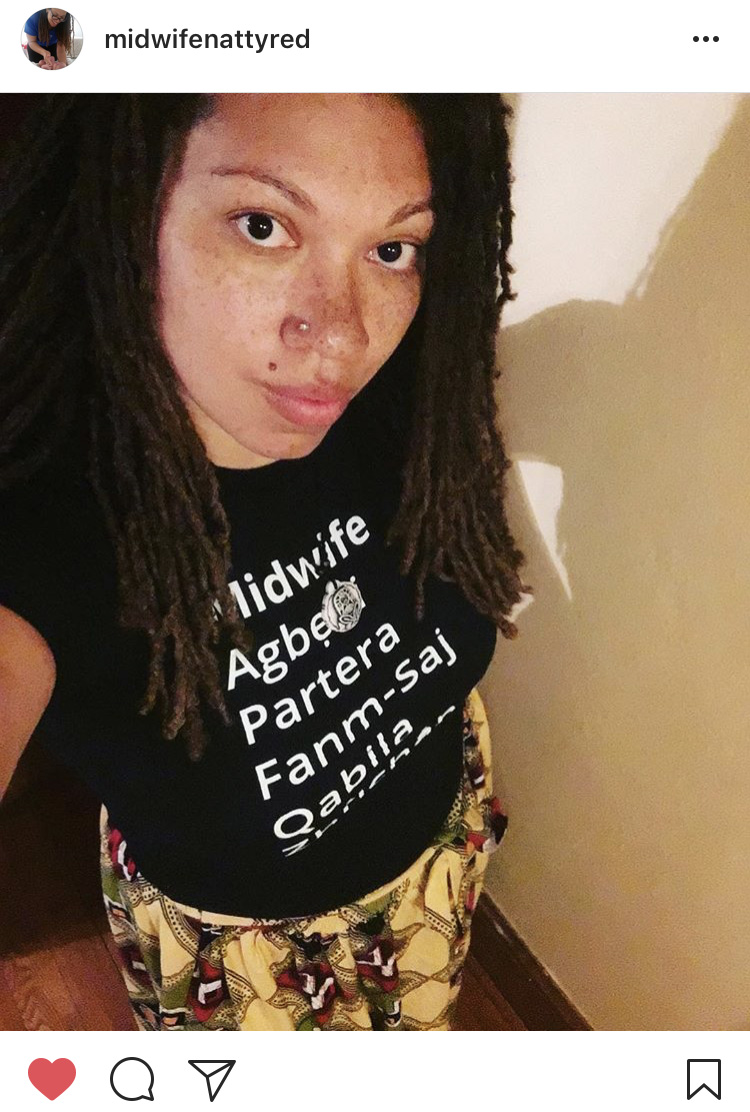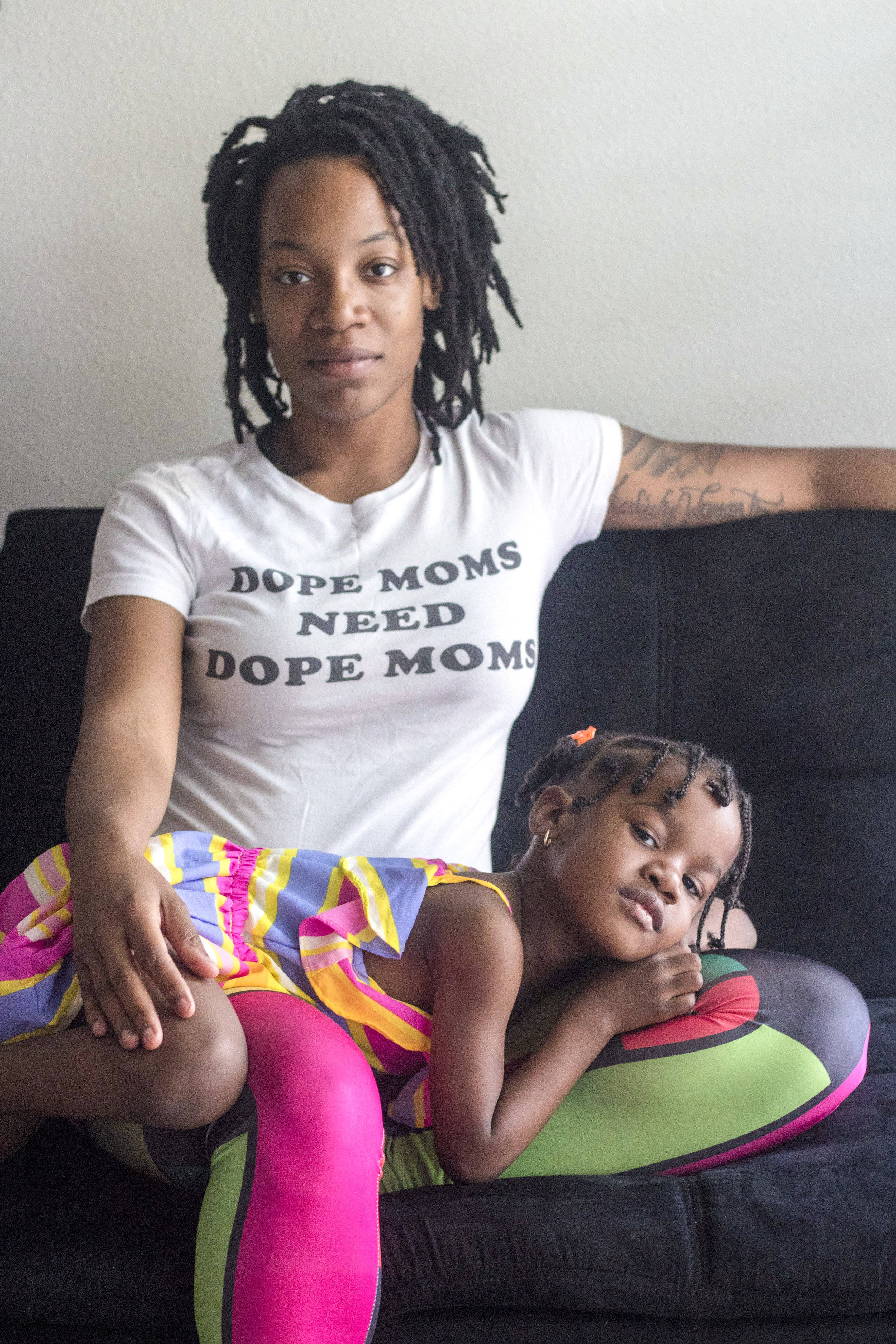Midwife, Agbebi, Partera, Fanm-Saj, Qabila, Zhuchan shi: Q&A with a Black Student Midwife
Today's post comes to you from Everyday Birth Magazine, a magazine about pregnancy, birth, and parenthood created for folks from many life experiences, brought to you by The Educated Birth. View the original post here.
Midwives are one of the options of care providers that you can choose when you're on your birth journey. The work of the midwife has been known across the world for generations upon generations. What are some of the things a midwife has to say today? About what it looks like to do this work, and what parents should know? Joining us on the blog today is Barbara Vernéus, a Black student midwife in Austin, Texas with a very important message for us all.
Welcome! Introduce yourself, what's your name, where are you, and tell us about your journey into midwifery?
Hi! My name is Barbara. I am the founder/creator of Tiny & Brave Holistic Services; student midwife, a blogger; maternal life coach, while being a single mother of one. I have been a trained Birth Companion, or doula, since 2004. In 2006, I went overseas through the African Birth Collective to Senegal, West Africa assisting midwives in labor and delivery. In 2008, I obtained a Graduate certificate from Boston University in Maternal and Infant Care in Public Health. I received my Master’s in Counseling with a concentration in Marriage and Family in 2016. I have written for Mater Mea; Mothering Naturally, Black Women Birthing Justice; MadameNoire and #NoPrivateParts. I've conducted workshops at Juneteenth Health Summit (Austin, TX); Yoni Poppin-Bellies Edition (Miami, FL) and Decolonize Birth (Brooklyn, NY). I am an advocate in being an instrument of healing to women, mothers and mothers-to-be who have experienced trauma; while inspiring more Black and Brown women to enter the birth work field. I am is also advocate/activist on the issue of the infant and maternal disparities happening within Black communities.
What has your experience as a Black student midwife been like so far?
My experience as a student hasn’t been easy and wasn’t because of the midwives. I have been fortunate enough to be with two amazing midwives that took me in. They were very understanding and as patient as possible about my circumstances of being a single mother with no physical support. Eventually I had to take a break from on-call life as a student and focus on being a single mother with no real physical support. At the current time I plan to attend La Luz Maternidad in El Paso, Texas for a minimum of 6 months, but really aiming for the one year program to continue to gain hands-on experience.
Why is it important that we see more Black and other POC midwives coming onto the scene?
Currently, we know that only 2% of the 15,000 midwives in the U.S. are Black, while the 40 million Black folks in this country make up 13% of the population. In the middle of this, Black women and babies are dying 3-4x higher than white women here. These numbers show us this is important.
Now, you make these amazing t-shirts — tell us about each of the types of shirts you're making and how that came to be, and how the funds are making an impact?
I created the Diasporic Midwife shirt in 2016 when I was doing my research of Black midwives in the U.S., and started realizing the lack of midwives in other cultures and asked, "Where
the Asian, Latinx, Haitian, Muslim, etc.,midwives?" I realized midwifery has been colonized. So I found the word midwife in each cultural language, and made this shirt to represent those we're not seeing.
Dope Moms Need Dope Moms, created in May 2017, came from the idea of just being a mother myself helping other women become mothers for the 1st time or all over again. My slogan comes from the African proverb that says "it takes a village" for we only successful as our support system. This is an ode to "mothering the mother" (doula); like mothers like me who are birth workers, helping others enter and re-enter motherhood. But most importantly it is helping to give awareness to the maternal and infant mortality rate. Black women and babies are 4x more likely to die than white women and one of the ways to help in that is standing in the gap for our fellow Black moms and being our sister's keeper when it comes to protecting our Black women and Black babies.
The funds from these shirts will be solely invested in my education at La Luz Maternidad in El Paso, TX to apprentice towards obtaining a Certified Professional Midwife credential. This program will provide me as student midwife with the opportunity to learn and acquire basic midwifery skills, attend births, catch babies, and provide prenatal and postpartum care. Licensed midwives sign off all skills and knowledge gained during this program.
Students who complete this program may get credit for the first and second quarters and continue their studies to complete a MEAC-accredited program which is my hope but as a single mother with no physical support is currently unpredictable. But I'm determined to make it happen. I haven't made it this far to fail myself, my daughter, and everyone who has invested in me thus far.
What do you want expecting parents of color to know about midwifery?
I want them to know midwifery care is an option first and foremost and that there are different options within midwifery itself. Depending on your state laws you can have a midwife in your hospital, birthing center and even in the comfort of your own home. Midwives are trained to make medical decisions just as obstetricians are trained — we're just trained differently — and studies have shown that a midwife's care can have positive, SAFE outcomes such as fewer complications or c-sections.
Is there anything else you'd like to say?
Becoming a Certified Professional Midwife is a difficult task. Laws and access to the education make it very difficult to become one, personal circumstances aside. If you want to pursue this kind of midwifery create a plan for how will you complete it. Look into how will you finance your education. Create your support team. Make sure to look at all the possible scenarios that may create barriers in accomplishing your dream and creating solutions to those barriers. This is a part of the reason why we don't see so many midwives who look like us, and this is what we can do to change that.
Even if you're not looking to become a midwife you can support our cause. Another way to make a difference is to fight to make the laws in your state more accessible and affordable to all the midwives to come.
Find Barbara Vernéus online: Website / Instagram / Facebook




